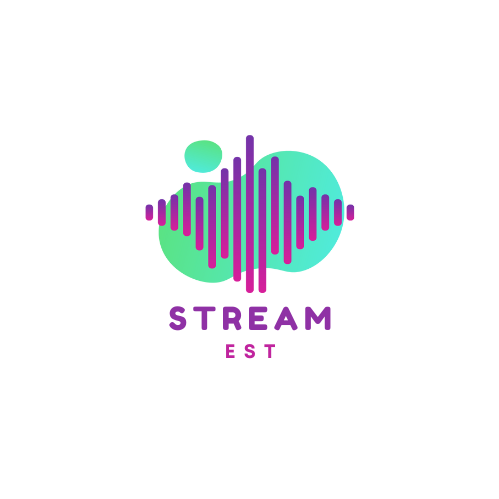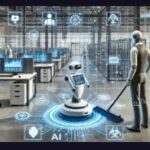Artificial Intelligence has taken over the entire process of human interaction with technology within our growing and modern world. Two such tools that most people, especially business groups, talk about simultaneously but are poles apart in their approach and functionalities include AI Chatbots and AI Agents. This difference is something businesses should be able to define in order to be able to adopt the appropriate AI-driven solution.
This blog will help understand AI Chatbot Vs AI Agents, what AI Chatbots and AI Agents are, and their main differences, along with how they can benefit your business.
Introduction to AI Chatbots and AI Agents
What is an AI Chatbot?
AI Chatbots are programs that are designed to simulate conversations with users, usually on a text or voice basis. They work based on predefined rules or AI algorithms and are primarily used for:
● Answering frequently asked questions
● Providing customer support
● Such as booking tickets or reminding one to send birthday presents
Normally, they appear on websites, in messaging applications, or in customer service forums. The sophistication of advanced chatbots lies in their application of machine learning, meaning they can learn over time. They are also task-oriented and, therefore, weakly decision-making.
What is an AI Agent?
An AI Agent, on the other hand, is a wittier AI system that can carry out complex, goal-oriented operations. AI Agents can analyze data, make decisions, and take actions autonomously. They are commonly used in more intelligent scenarios such as:
● Workflow management
● Predictive analysis
● Business Process automation
AI Agents typically utilize sophisticated technologies such as natural language processing (NLP), machine learning, and reinforcement learning. companies can involve dedicated AI Agent Development Services to craft an agent according to their individual needs.
Key Difference Between AI Chatbot and AI Agents
Artificial Intelligence has transformed business interaction with technology and with customers. Two of the more frequently used AI-driven solutions are AI Chatbots and AI Agents. Though often used interchangeably, they operate to fulfill very different purposes, with completely different designs for vastly different tasks. And so, this understanding is very important to businesses planning to choose the right kind of AI tool for their needs.
This is a detailed yet simple analysis of the Difference Between AI Chatbot and AI Agents or AI Chatbot Vs AI Agents.
1. Purpose and Functionality
AI Chatbot:
The purpose of AI chatbots is to mimic conversations with a user. Their primary function is to respond to users quickly and straightforwardly – help them with simple queries or tasks. Examples are customer support chatbots answering FAQs, help desk assistants, and e-commerce bots guiding users through catalogs of products.
For example: a bot may be placed on the banking website to provide some information regarding the account balances or the process for loan application.
AI Agent:
AI Agents are well beyond simple conversations wherein the agent can analyze complex data, even make decisions, and act alone. Their intentions are developed towards goal-oriented tasks that range from automation of workflows and efficient resource management to predictive analysis.
Example: An AI Agent working for a logistics company may improve the routes of its deliveries in real-time with traffic information and weather updates.
2. Technology and Complexity
AI Chatbot:
The majority of the chatbots are made on rule-based algorithms or simple NLP models. Though there exist advanced ones that use machine learning (ML), those are still narrow in scope. They operate according to frameworks set by man and will do only what they are programmed to.
Example: A chatbot can handle a question such as “What are your working hours?” but fails with unrelated or complex questions.
AI Agent:
AI Agents are designed using much more advanced technologies such as deep learning, reinforcement learning, and advanced NLP. They can learn based on their environment, update over time, and work with multi-dimensional tasks.
Example: An AI Agent used in stock trading can analyze market trends, predict price movements, and execute trades based on real-time insights.
3. Decision-Making Capability
AI Chatbot:
Chatbots are reactive and limited in their decision-making. They work based on programmed responses or simple logic trees. If a query falls outside their predefined scope, they either fail to respond effectively or escalate the issue to a human agent.
For example, when a user asks a chatbot to elaborate on a certain policy in technical jargon, the bot can respond to the user with a standard response or send it to the live agent.
AI Agent:
AI agents are proactive and can act without any human intervention. They will take various data inputs, analyze them in real time, and make a decision without any human interaction. This is precisely why they are best suited for judgment and flexibility-based work.
Example: An AI Agent in healthcare can scan patient records, predict health risks, and advise preventive measures.
4. Interaction and Autonomy
AI Chatbot:
Chatbots are created to interact with users. They chit-chat when the user starts initiating the conversation; it is a quick responsive tool. It responds to the basis of questions or commands received.
Example: A chatbot in an e-commerce website helps customers find products when they type in a query.
AI Agent:
AI Agents operate autonomously. While they might interact with the users, their main role is to act and make decisions autonomously. They do not require anyone to interact directly and work behind the scenes.
Illustration: An AI Agent in a manufacturing plant can track the machinery, predict when maintenance is needed, and schedule repairs all without human intervention.
5. Integration and Scalability
AI Chatbot:
The integration of chatbots is quite easy in their existing systems. They are best suited for smaller and medium-sized tasks. Chatbots appear on websites, messaging apps, and on customer service platforms. They were not meant to perform heavy operations or large-sized data.
Example: A chatbot integrated into a company’s website responds to queries.
AI Agent:
AI Agents are more complex to integrate and typically will require integration with professional AI Agent Development Services or agencies. They can integrate with several systems, scale to support large businesses, and easily adapt to changing business requirements.
For example: An AI Agent was applied to a retail chain to analyze the behavior of customers and help them manage their inventory in multiple stores.
6. Learning and Adaptability
AI Chatbot:
Although some chatbots can gain intelligence over time through the use of ML, their ability to change remains limited. Enterprise AI Chatbot Development focuses on overcoming this limitation by creating advanced solutions that operate beyond basic patterns, enabling significant improvements through both automated learning and strategic manual updates.
Example: A chatbot might learn common synonyms for queries but will never learn the inner feelings of a user.
AI Agent:
AI Agents are designed to learn continuously from the environment. They incorporate new data; improve their decision-making processes; and, within time, improve their performance.
Example: An AI Agent for marketing can take into account the results of a campaign and evolve strategies to increase ROI
7. Cost and Deployment Time
AI Chatbot:
Chatbots are more affordable and quicker to deploy. They are suitable for businesses looking for a cost-effective way to enhance customer interaction.
Example: A Startup That Is Developing a Chatbot That Could Answer Simple customer service Enquiries
AI Agent:
AI Agents are more resource-intensive to develop and deploy. Companies usually hire an AI Agent Development Agency to have something custom-developed for themselves, so AI Agents come at quite a cost for the long-term value.
Example: An Enterprise Company That Creates an AI Agent That Can Automate Supply Chain Operations
Why It Matters for Businesses
To analyze if a business needs to deploy an AI chatbot or an AI Agent, one first needs to know its goals. Here is a quick comparison:
- Use an AI Chatbot if: Your primary aim is to better customer service, to respond to FAQs, or to help users in very simple, straightforward tasks. Chats are cost-effective and easy to deploy.
- Use an AI Agent if You want to automate complicated workflows, base your decisions on data, or handle big operations. An AI Agent can bring dramatic changes but requires more investment and planning.
Advantages of Both Technology
Advantages of AI Chatbots:
● Enhanced Customer Support: Offer 24/7 support services.
● Cost-Effective: The tools use minimal resources as far as deployment and maintenance are concerned.
● Quick Response: Can handle the large volumes of queries.
Advantages of AI Agents:
● Process Automation: Streamline repetitive tasks.
● Data Analysis: Provide meaningful insights from huge data.
● Decision Making: Reduce human errors by autonomously making informed decisions.
Conclusion
The AI Chatbot Vs AI Agents debate boils down to the specific needs of your business. While chatbots excel at improving user interactions and addressing simple queries, AI Agents go a step further by handling complex tasks and driving intelligent automation.
For businesses looking to leverage AI completely, a partnership with the best professionals in AI Agent Development Services or becoming a partner with the best generative AI development company will ensure that you have a smooth and successful experience. Knowing the difference between AI Chatbot and AI Agents, and how both will equip you with the ability to make correct decisions and further your business goals through AI.
AI is transforming industries, and whether you choose a chatbot or an agent, adopting the right AI solution can position your business ahead of the competition.
Stay updated with Streamest.






